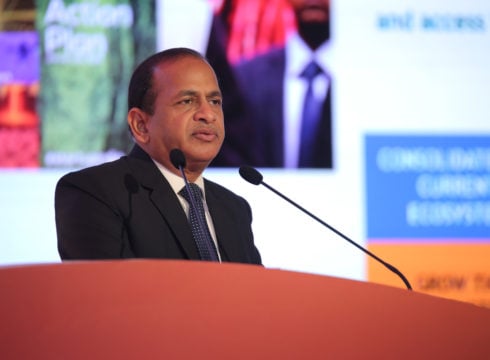SUMMARY
The Centre has already committed $223 Mn under the FFS, which is expected to make a corpus of $2.2 Bn available for startups
55% of the startups are located in Tier 1 cities while 27% and 18% are based out of tier 2 and 3 cities
1.30 Lakh jobs have been reportedly created by 11,727 startups at an average of 11 jobs per startup
Inc42 Daily Brief
Stay Ahead With Daily News & Analysis on India’s Tech & Startup Economy
India has been aggressively implementing its startup-oriented policies, extending tax exemption, patent grants, and self-certification facilities to startups. These concentrated efforts have enabled the government to recognise 14K startups from across 484 districts of India.
“Out of the $309 Mn (INR 2200 Cr) authorised under the Fund of Funds for Startups (FFS), $226 Mn (INR 1,611 Cr) has been committed to the SIDBI, and, so far, 170 startups have raised catalysed funding of $127.6 Mn (INR 879 Cr) from 32 AIFs under the FFS scheme,” said Ramesh Abhishek, the secretary of the Department of Industrial Policy and Promotion (DIPP).
Speaking at the Inc42 The Ecosystem Summit held on November 16 in New Delhi, the DIPP secretary enumerated the benefits being extended to startups and shared how the government has been able to reform policies and infrastructure in favour of startups and entrepreneurs.
On January 16, 2016, the Centre launched Startup India, a flagship initiative aimed at building a strong ecosystem for nurturing innovation and startups in the country. The programme has helped drive economic growth and generate large-scale employment opportunities in India.
Reiterating Prime Minister Narendra Modi’s statement from the Startup India launch event — “We want entrepreneurs, we want job creators” — Abhishek gave an account of the success of Startup India. He said, “Forty-five per cent of the recognised startups have at least one women cofounder. Women-only led startups are 10%.”
The government had also launched the Startup India Hub (now merged with Startup India portal) — a virtual networking platform that brings all startup ecosystem stakeholders on one platform.
Order The Report NowStartup India: Below are some of the updates presented by Ramesh Abhishek
- The 14K startups recognised under Startup India are spread across 484 districts in 29 states and 7 Union territories
- 55% of the startups are located in Tier 1 cities while 27% and 18% are based out of tier 2 and 3 cities
- 1,30,424 jobs have reportedly been created by 11,727 startups at an average of 11 jobs per startup
- About 45% of the startups have women cofounders
- Expecting a 10X increase, the government has committed $223 Mn under the FFS and expects to hike up the corpus of fund available to startups to $2.2 Bn
- 801 applications have already been granted the 80% patent rebate
- 1,226 applications have received the 50% trademark debate
- 1,16,749 enquiries have been successfully resolved so far
- 375 startups mentored and facilitated by the team (in areas such as business advisory, financial advisory, tax and legal support, stakeholder introduction, etc.)
Indian Govt’s Policy Initiatives
At the Ecosystem Summit, the DIPP secretary spoke of the policy reform initiatives in terms of government procurement policies for startups, IPR (Intellectual property rights) grants, tax exemptions, and other compliances.
Relaxation of Public Procurement Norms: Relaxation has been made in terms of turnover, experience, and the Earnest Money Deposit (EMD) condition for startups. All Central Public Sector Undertakings (CPSUs) will have to follow the set procedure and give preferential treatment to startups; DIPP-recognised startups can directly register and sell on the Government-e-Marketplace (GeM) with no minimum turnover and experience criteria. A total of 932 startups have registered on the GeM portal.
Tax Exemptions: Startups can apply to avail exemption under Section 56 and Section 80 IAC of the Income Tax Act, 1961.
Easier Compliances: Inspections against six labour and three environmental laws have been relaxed for startups. They are now allowed to self-certify against laws, easing compliances. An Insolvency and Bankruptcy Board has also been constituted to fast-track exits by enabling startups to wind up operations with a 90-day period as opposed to 4 years earlier.
Regulatory Changes: A total of 22 regulatory changes have been made in the Alternate Investment Fund Regulations, the RBI policy, the Companies Act (MCA), and the Income Tax Act.
In February, the Centre had launched three new tools for states and Union territories for ranking of startups in the country. The tools are: the state and Union territory Startup Ranking framework; the compendium of good practices for promoting startups in India; and the Startup India kit. While 20 out of 29 states have already launched their startup policies, others like Tamil Nadu and Delhi are expected to launch their policies soon.
Order The Report NowNote: We at Inc42 take our ethics very seriously. More information about it can be found here.


